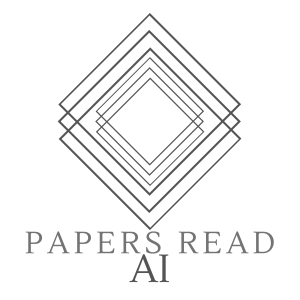
Prompt learning has emerged as an efficient alternative for fine-tuning foundational models, such as CLIP, for various downstream tasks. Conventionally trained using the task-specific objective, i.e., cross-entropy loss, prompts tend to overfit downstream data distributions and find it challenging to capture task-agnostic general features from the frozen CLIP. This leads to the loss of the model's original generalization capability. To address this issue, our work introduces a self-regularization framework for prompting called PromptSRC (Prompting with Self-regulating Constraints). PromptSRC guides the prompts to optimize for both task-specific and task-agnostic general representations using a three-pronged approach by: (a) regulating {prompted} representations via mutual agreement maximization with the frozen model, (b) regulating with self-ensemble of prompts over the training trajectory to encode their complementary strengths, and (c) regulating with textual diversity to mitigate sample diversity imbalance with the visual branch. To the best of our knowledge, this is the first regularization framework for prompt learning that avoids overfitting by jointly attending to pre-trained model features, the training trajectory during prompting, and the textual diversity. PromptSRC explicitly steers the prompts to learn a representation space that maximizes performance on downstream tasks without compromising CLIP generalization. We perform extensive experiments on 4 benchmarks where PromptSRC overall performs favorably well compared to the existing methods. Our code and pre-trained models are publicly available at: https://github.com/muzairkhattak/PromptSRC.
2023: Muhammad Uzair Khattak, Syed Talal Wasim, Muzammal Naseer, Salman Siddique Khan, Ming Yang, F. Khan
https://arxiv.org/pdf/2307.06948v1.pdf
view more
2023: Muhammad Uzair Khattak, Syed Talal Wasim, Muzammal Naseer, Salman Siddique Khan, Ming Yang, F. Khan
https://arxiv.org/pdf/2307.06948v1.pdf
More Episodes
What Makes Good In-Context Examples for GPT-3?
 2023-10-03
2023-10-03
 130
130
 2023-10-03
2023-10-03
 130
130
Qwen Technical Report
 2023-10-02
2023-10-02
 121
121
 2023-10-02
2023-10-02
 121
121
NExT-GPT: Any-to-Any Multimodal LLM
 2023-09-25
2023-09-25
 153
153
 2023-09-25
2023-09-25
 153
153
GPT Can Solve Mathematical Problems Without a Calculator
 2023-09-22
2023-09-22
 161
161
 2023-09-22
2023-09-22
 161
161
Tracking Anything with Decoupled Video Segmentation
 2023-09-21
2023-09-21
 112
112
 2023-09-21
2023-09-21
 112
112
ModuleFormer: Modularity Emerges from Mixture-of-Experts
 2023-09-20
2023-09-20
 107
107
 2023-09-20
2023-09-20
 107
107
Cognitive Architectures for Language Agents
 2023-09-15
2023-09-15
 141
141
 2023-09-15
2023-09-15
 141
141
LLaSM: Large Language and Speech Model
 2023-09-07
2023-09-07
 133
133
 2023-09-07
2023-09-07
 133
133
Nougat: Neural Optical Understanding for Academic Documents
 2023-09-06
2023-09-06
 129
129
 2023-09-06
2023-09-06
 129
129
Communicative Agents for Software Development
 2023-09-04
2023-09-04
 145
145
 2023-09-04
2023-09-04
 145
145
Code Llama: Open Foundation Models for Code
 2023-09-01
2023-09-01
 162
162
 2023-09-01
2023-09-01
 162
162
012345678910111213141516171819
Create your
podcast in
minutes
- Full-featured podcast site
- Unlimited storage and bandwidth
- Comprehensive podcast stats
- Distribute to Apple Podcasts, Spotify, and more
- Make money with your podcast
It is Free
- Privacy Policy
- Cookie Policy
- Terms of Use
- Consent Preferences
- Copyright © 2015-2024 Podbean.com





